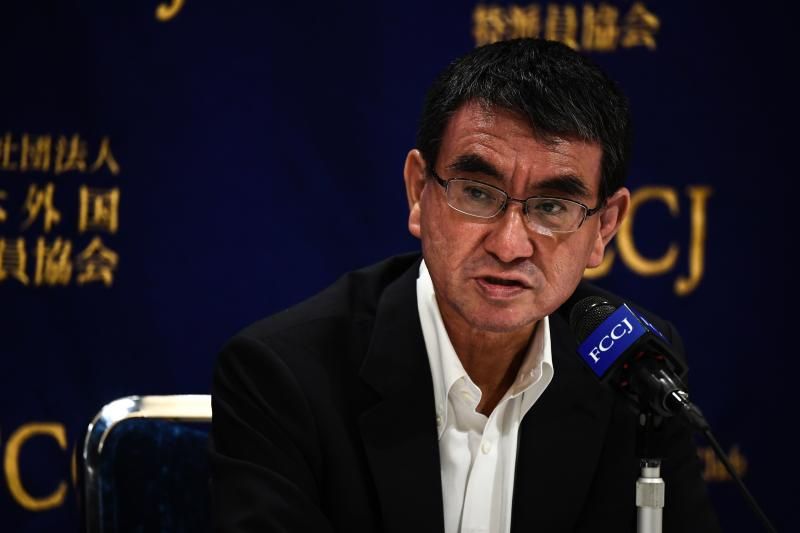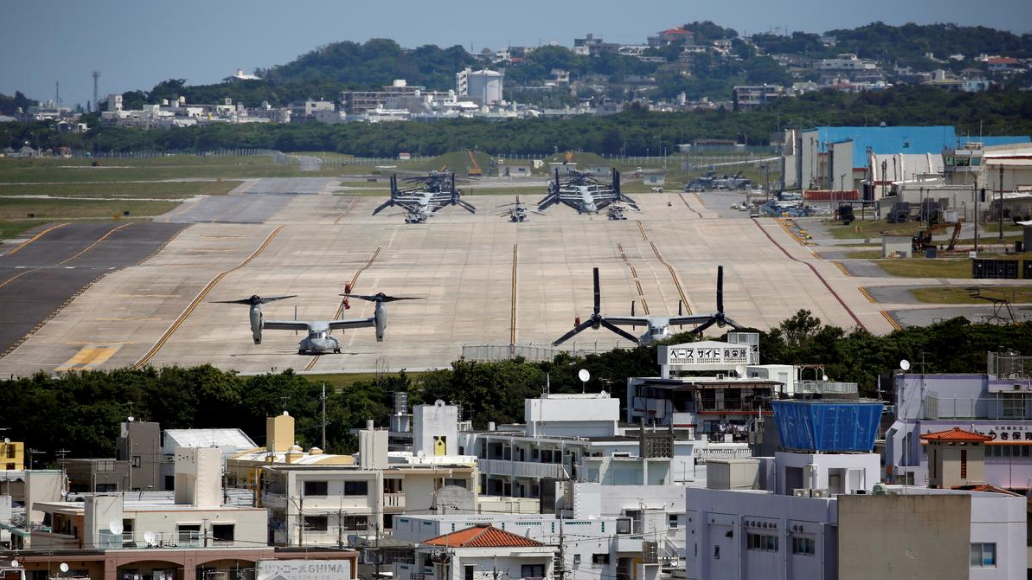
Japanese Defense Minister Taro Kono calls on the United States to conduct COVID-19 testing on all U.S. military personnel coming to Japan after outbreaks of the virus have hit its bases in the southernmost prefecture of Okinawa, Japan, July 17, 2020. /Xinhua
Japanese Defense Minister Taro Kono calls on the United States to conduct COVID-19 testing on all U.S. military personnel coming to Japan after outbreaks of the virus have hit its bases in the southernmost prefecture of Okinawa, Japan, July 17, 2020. /Xinhua
Japanese Defense Minister Taro Kono said on Friday that he has called on the United States to conduct coronavirus testing on all U.S. military personnel coming to Japan after outbreaks of the virus hit U.S. bases in the southernmost prefecture of Okinawa.
Kono told a press briefing on the matter that the defense ministry has requested that U.S. military personnel bound for Japan take one test prior to leaving the United States and one upon arrival in Japan.
"With so many asymptomatic people, PCR (polymerase chain reaction) testing is a must," Kono said, adding that tests needed to be carried out, without exception, on military personnel before leaving the United States and coming to Japan.
Kono said the U.S. side has said it is considering the request.
Okinawa Governor Denny Tamaki has also asked the U.S. side to clarify whether or not they are taking the necessary virus prevention measures while based in Okinawa, including two-week quarantine measures where necessary.
Tamaki has also called for the Japan-U.S. Status of Forces Agreement (SOFA) to be reviewed as U.S. military personnel are exempt from Japan's quarantine rules and travel bans.
On Thursday, the U.S. Marine Corps Camp Hansen in Okinawa reported 58 new coronavirus cases, the Okinawa prefectural government said. In addition to the base, 73 cases have been linked to U.S. Marine Corps Air Station Futenma, with another five confirmed at Kadena Air Base, and one each at Camp McTureous and Camp Kinser, officials said.
The total number of the coronavirus cases confirmed at U.S. military bases in Okinawa reached 138 on Thursday, the prefectural government said, adding that amid fears of the virus spreading to the local population, an elderly taxi driver had tested positive for COVID-19.
The driver, in his 80s, was known to have had contact with U.S. military personnel, officials said.

U.S. Marine Corps MV-22 Osprey aircrafts are seen at the U.S. Marine Corps' Futenma Air Station in Ginowan on Japan's southernmost island of Okinawa, March 24, 2018. /Reuters
U.S. Marine Corps MV-22 Osprey aircrafts are seen at the U.S. Marine Corps' Futenma Air Station in Ginowan on Japan's southernmost island of Okinawa, March 24, 2018. /Reuters
Tamaki, earlier in the week, met with Japanese and U.S. government officials in Tokyo to relay his concerns over the U.S. military-linked virus outbreaks on the island.
While the U.S.' novel coronavirus epidemic is still grim, the U.S. military bases in Japan has ushered in a "rotation season." The number of confirmed COVID-19 cases has seen a marked increase in U.S.' bases in Japan recently.
South Korea also suffers a similar situation as Japan due to the U.S. Forces Korea.
On Thursday, 14 more Americans affiliated with USFK have tested positive for COVID-19 upon their arrival in South Korea, the U.S. military said. The latest cases brought the total number of USFK-related infections to 88, among which 52 were reported in July.
USAF reported that the 14 new confirmed cases, 12 of whom were service members, and two their dependents, were tested positive after arriving between July 9 and 15.
The sharp increasing COVID-19 positive cases in the U.S. military bases become a loophole in the South Korean and Japanese fighting novel coronavirus pandemic, triggering the uneasiness of the local government and residents.
Tamaki has urged the central government to suspend U.S. military transfers to Okinawa as soon as possible. Prior to the suspensions, he has urged that all U.S. military personnel coming to Japan undergo PCR tests.
Okinawa hosts the bulk of U.S. military facilities in Japan, and Kono, meanwhile, has said that without enhancing testing measures, U.S. military personnel in Okinawa infected with the virus but asymptomatic could pass on the virus unknowingly.
As well as risking infecting the local community in Okinawa, Kono said it is also important for the U.S. to protect its own personnel from the virus spreading further on U.S. bases in Okinawa.
(With input from agencies)